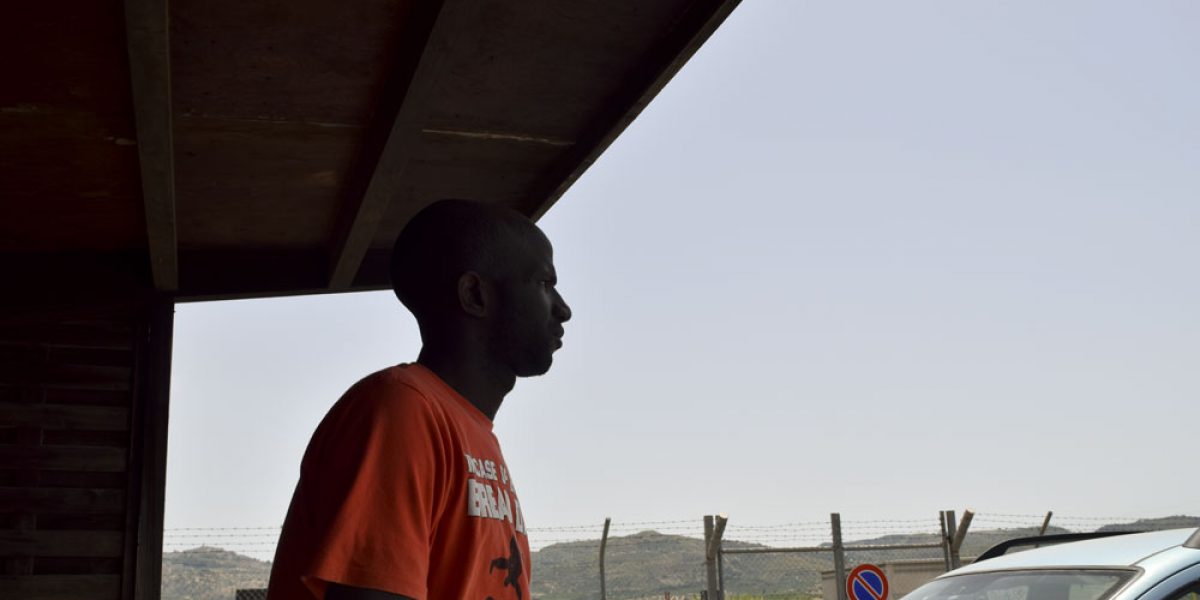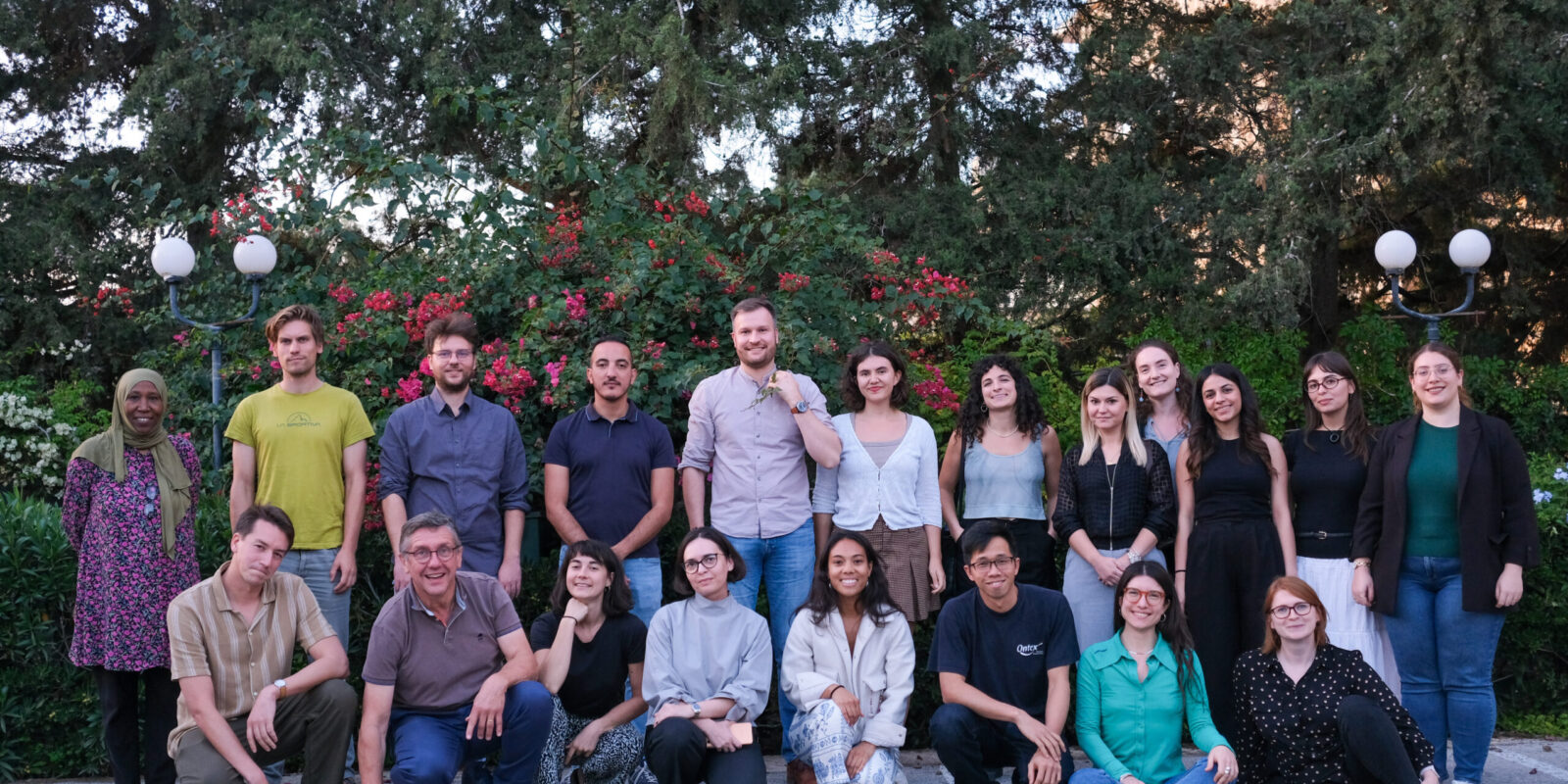
Brussels, 7 October 2014 – Interviews conducted with migrants stranded in southern Italy expose the failure of European reception systems to uphold principles of human dignity, hospitality and fairness, according to the findings of a new report by the Jesuit Refugee Service.
The report, Rescued – what next? Protection seekers stranded in Sicily, launched in Brussels today, highlights how the much-heralded Common European Asylum System, with guaranteed minimum asylum and reception standards, is far from being achieved.
Crucially, the report calls for more intra-European solidarity to fund basic minimum reception services and asylum procedures, as well as search and rescue operations. Between 2007 and 2013, the EU allocated about 700 million euro to support asylum procedures, but almost 1,820 million euro for border controls.
A year after nearly 400 migrants drowned within sight of the Lampedusa coastline, the Italian search and rescue operation Mare Nostrum has saved more than 140,000 lives. But not enough has been done to meet the basic needs of asylum seekers in Europe, neither by Italy nor fellow EU states.
“We’re saving people at sea because it’s the right thing to do,” says JRS Europe senior policy officer Stefan Kessler. “Surely it’s then wrong to punish them for seeking asylum? It doesn’t make sense. The EU is failing to live up to its own standards on freedom and human rights.”
The voices of people who have fled conflict and persecution, from countries such as Afghanistan, Pakistan and Nigeria, ring loud and clear in the report. They overwhelmingly feel excluded from Italian life and subjected to lengthy and complex administrative procedures.
“We came here to have freedom, we didn’t come here to find more problems, to be shut up in an isolated place where we don’t know anything, because that place is… practically in the bush,” says Marcel, a resident of CARA di Mineo reception centre housing 4,000 asylum seekers in the middle of the Sicilian countryside.
“My bones hurt. I still have back pains from sleeping on the street. I slept on cardboard with no blanket or sheets,” relates Kofi, whose wife and two children drowned as they attempted to join him in Europe. Kofi’s experience of the reception centre was so bad he chose to go to Switzerland without documents. He was soon detained and sent back to Italy.
JRS Europe director Michael Schöpf SJ states: “Simply listening to the migrants, people who have sacrificed everything to reach safety, reveals how national and European policies have failed to respect their dignity, create employment opportunities or help their integration into local communities”.
“The report should come as a wake-up call to anybody who reads it,” adds Schöpf. “We cannot just focus on border security. We have an international obligation to develop fair and effective asylum systems in Europe that actually protect people and help them re-build their lives.“
Please download your copy of the report from www.jrseurope.org or https://en.jrs.net
Policy briefing, Altiero Spinelli building, room ASP A1G-3, European Parliament, Brussels
7 October 2014 at 14:00
Speakers
- Barbara Lochbihler MEP (Vice-Chair of the Human Rights Sub-Committee
- Issouf, holder of subsidiary protection status in Italy
- Daniele Vella, researcher for JRS Europe
- Mr Stefan Kessler, JRS Europe Senior Policy & Advocacy Officer, JRS Europe
- Ms Roberta Metsola, MEP (Vice-Chair, Committee on Petitions; member, Civil Liberties Committee)
For further information
James Stapleton
International Communications Coordinator
Jesuit Refugee Service
Tel: +39 06 69868 468; +39 346 234 3841
twitter: @stapletonjm; linkedin.com/in/stapletonjm
en.jrs.net
facebook.com/JesuitRefugeeService
twitter: @JesuitRefugee; @JrsInternaz
Oscar Spooner
Communications Officer
Jesuit Refugee Service Europe
Tel: +32 2 250 3225
oscar.spooner@jrs.net
www.jrseurope.org
http://www.twitter.com/JRSEurope
Note to editors
JRS programmes are found in 50 countries, providing assistance to: refugees in camps and cities, individuals displaced within their own countries, asylum seekers in cities, and to those held in detention centres. The main areas of work are in the field of education, emergency assistance, healthcare, livelihood activities and social services.
At the end of 2013, JRS employed approximately 1,400 staff: lay, Jesuits and other religious to meet the education, health, social and other needs of nearly 950,000 refugees and IDPs, more than half of whom are women. Services are provided to refugees regardless of race, ethnic origin or religious beliefs.
Between 2007 and 2013, the EU allocated about 700 million euro to support asylum procedures, but almost 1,820 million euro for border controls.

